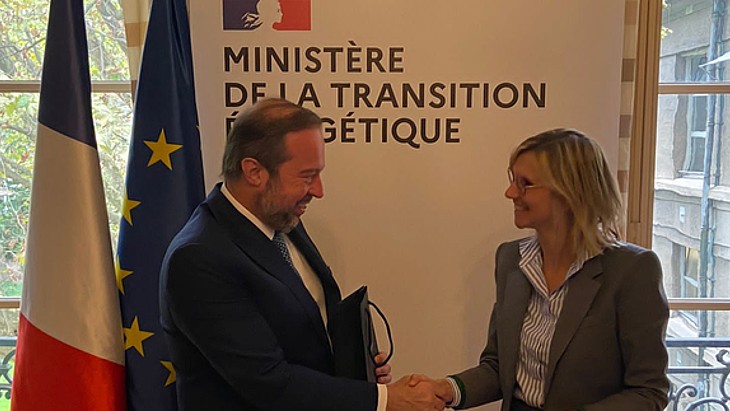Brazil's Minister of Mines and Energy Alexandre Silveira and France's Energy Transition Minister Agnès Pannier-Runacher discussed energy transition issues and strategic partnership opportunities.
Silveira said: "We know that Brazil and France have a historical relationship in the energy sector, mainly due to the traditional presence of French energy companies in Brazil. Unfortunately, in recent years, this relationship has gone through a period of stagnation, and we are here to rebuild cooperation between nations."
According to the Brazilian Ministry of Mines and Energy, "it was established that a permanent work agenda would be structured between the two countries, which would cover several areas, with an emphasis on nuclear energy, a topic on which the countries demonstrated interest in working together and getting even closer. The prospects for Brazil's presidency of the G20 next year and how the Brazilian and French governments can work not only bilaterally, but multilaterally towards a common agenda were also discussed".
Following the meeting representatives from French companies in the nuclear energy sector - including EDF and Framatome - met Silveira to discuss on-going and potential new business in Brazil.
Brazil currently has two reactors - Angra 1 and Angra 2 - which generate about 3% of the country’s electricity. Work on the Angra 3 project - to feature a Siemens/KWU 1405 MW pressurised water reactor - began in 1984 but was suspended two years later, before construction began. The scheme was resurrected in 2006, with first concrete in 2010. But, amid a corruption probe into government contracts, construction of the unit was halted for a second time in 2015, when it was 65% complete. At the time of the project’s revitalisation last year, Eletronuclear’s aim was to start operations by the end of 2026.
Brazil also began a process to identify sites for new nuclear power plants in 2022. The country has historically relied on hydro for as much as 80% of its electricity but changes in rainfall patterns produced droughts which reduced this to 65% by 2018. Brazil’s National Energy Plan to 2050 says the country aims to add 10 GW of nuclear capacity in the next 30 years. France has 56 operable nuclear power plants, and has plans for a wave of new ones in the coming years.















